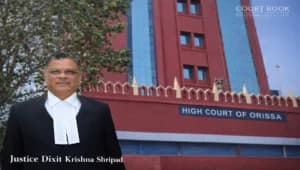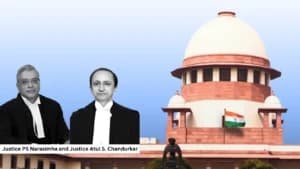In a significant ruling, the Supreme Court of India has raised concerns about the existing process of senior advocate designation. On February 20, a two-judge bench, comprising Justice Abhay S. Oka and Justice Ujjal Bhuyan, highlighted key issues in the current system and referred the matter to the Chief Justice of India (CJI) for further consideration by a larger bench.
The court clarified that while it respects the earlier rulings in the Indira Jaising case (2017 & 2023), there are pressing concerns that need to be addressed to ensure fairness and transparency in the designation process.
The bench identified multiple flaws in the senior designation process, particularly questioning the points-based assessment method. The key concerns raised are:
The Supreme Court pointed out multiple defects in the Senior Advocate designation process, particularly questioning the reliability of the points-based assessment system.
One of the key concerns was that, under Section 16(2) of the Advocates Act, no advocate can demand designation as a Senior Advocate. It is purely a privilege granted by the Supreme Court or High Courts.
The bench also questioned whether a short interview of a few minutes is enough to judge an advocate’s overall personality and competence. Presently, 25 out of 100 points are assigned for the interview, but the system does not allow any deduction of marks based on integrity, fairness, or pending complaints against an advocate. This raises concerns about whether candidates with professional misconduct records could still secure high marks based purely on their interview performance.
Read Also:- Supreme Court Orders States to Consider Premature Release of Convicts Without Applications
Another major issue was the evaluation of cases and publications. Applicants submit judgments and published articles for assessment, and 50 marks are assigned based on these submissions. The court questioned whether the Permanent Committee (comprising three senior judges, including the CJI, and two senior advocates) could realistically review all the submitted judgments and articles before awarding marks.
The bench also cast doubt on the overall fairness of the points-based evaluation system, stating that it may not be the most effective method for assessing an advocate’s eligibility for senior designation.
Following these observations, the Supreme Court directed the Registrar General to place a copy of the judgment before the Chief Justice of India, who will decide whether the matter needs to be examined by a larger bench.
In the same ruling, the Supreme Court also emphasized the duties and responsibilities of Advocates-on-Record (AoRs), particularly in ensuring accuracy in legal filings.
The court stressed that an AoR is entirely responsible for the correctness of all petitions, appeals, and affidavits filed before the Supreme Court, even if another advocate has drafted them. Before filing a petition, the AoR must verify that all facts are accurately represented and that no key documents are omitted. If there are any doubts, the AoR must seek clarification from the client or the drafting advocate before proceeding.
Additionally, the court made it clear that an AoR cannot shift blame to the instructing counsel or the client if false statements are found in a petition. The AoR remains directly answerable to the Supreme Court.
The court also stated that an AoR’s duty extends beyond just filing petitions. They must ensure they are fully prepared for the case, even if the appointed counsel is absent. Simply lending their name to petitions drafted by others, without thoroughly reviewing them, can compromise the quality of justice.
If an AoR engages in professional misconduct or fails to meet these responsibilities, action can be taken against them under Rule 10 of Order IV of the Supreme Court Rules, 2013.
Read Also:- Supreme Court Rules Against Oppressive Conditions in Remis
Background: Misrepresentation by Senior Advocate Rishi Malhotra
The Supreme Court examined these issues in light of false statements and suppression of facts in multiple remission pleas filed by Senior Advocate Rishi Malhotra and Advocate-on-Record Jaydeep Pati.
On September 2, 2024, the Supreme Court identified material misrepresentation in a Special Leave Petition (SLP) seeking premature release. The petition failed to disclose a previous ruling that reinstated the petitioner’s 30-year sentence without remission, leading the court to classify it as a case of gross misrepresentation.
As a result, the court issued a notice to AoR Jaydeep Pati, directing him to submit an affidavit explaining his conduct.
The Supreme Court Advocates-on-Record Association (SCAORA) and several legal experts have suggested reforms to strengthen the Senior Advocate designation process and improve AoRs' accountability.
One key recommendation is the real-time assessment of AoRs' contributions and their inclusion in the Permanent Committee that evaluates Senior Advocate applications.
During the hearings, Solicitor General Tushar Mehta urged a review of the 2017 Indira Jaising judgment, which currently governs the Senior Advocate designation process.
Amicus Curiae Dr. S. Muralidhar suggested implementing a secret ballot voting system, where all constitutional court judges vote on Senior Advocate designations.
On the other hand, Senior Advocate Indira Jaising opposed the secret ballot system, arguing that the process should remain transparent. She advocated for live-streaming full-court discussions on Senior Advocate designations to enhance openness and public trust.
Jaising also raised concerns about lobbying influencing the selection process and stressed that designation should be based purely on competence rather than personal influence. She further emphasized the importance of considering gender, caste, and minority representation to promote diversity in the legal profession.
Case no. – Petition for Special Leave to Appeal (Crl.) No. 4299/2024
Case Title – Jitender @ Kalla v. State (Govt.) of NCT of Delhi & Anr.















